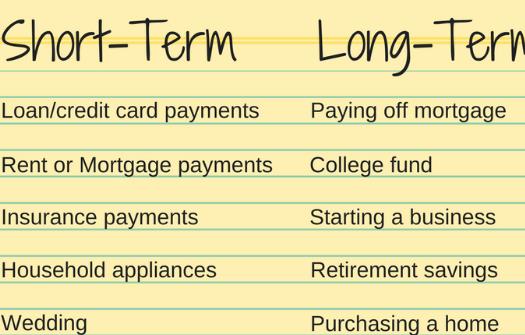What Defines a Short Term Goal?
In the strategy of setting objectives, understanding the nature of short term goals is crucial for immediate success and momentum. Short term goals serve as actionable, immediate targets that are essential for stepping stones towards larger, long-term ambitions. This article will delve into what constitutes a short term goal, its key characteristics, and the pivotal role it plays in achieving broader objectives.

Essential Characteristics of Short Term Goals
Short term goals are defined by their quick completion timeframe, typically set to be achieved within a year or less. These goals are tactical, focused, and highly specific, aimed at producing immediate results.
- Time-Bound: Short term goals are characterized by their urgent nature, usually spanning from a few days up to no more than twelve months.
- Specificity: They have very clear, defined outcomes. This specificity ensures that objectives are straightforward and measurable, which is crucial for tracking progress.
- Achievability: These goals are realistic and attainable within a short span, making them more immediate and accessible than long-term objectives.
Examples of Short Term Goals:
- Increase Monthly Sales: A business might aim to increase its sales by 20% within the next quarter. This clear, measurable target allows for quick adjustments in tactics and strategy if progress is not on track.
- Complete a Professional Development Course: An individual might set a goal to complete a specific training program within three months to enhance skills pertinent to their job role.
- Reduce Operating Costs: A company could target reducing its operational expenses by 10% over the next six months through strategic cost-cutting measures.
Impact of Short Term Goals
The implementation of short term goals has a direct impact on productivity and motivation. According to a study by the University of Scranton, people who set short term goals are 42% more likely to achieve their desired outcomes compared to those who do not set any goals. This effectiveness is largely due to the immediate feedback loop that short term goals provide, allowing individuals and teams to see quick results and adjust their strategies accordingly.
The Role of Short Term Goals in Strategic Planning
Short term goals are integral to the fabric of strategic planning. They provide immediate direction and action points that are essential for maintaining momentum towards achieving long-term goals. By breaking down larger objectives into manageable, immediate tasks, short term goals make the daunting process of reaching far-reaching aims more attainable and less overwhelming.
- Bridge to Long-Term Success: They act as stepping stones or building blocks that lead to the completion of long-term ambitions.
- Flexibility and Adaptation: The immediate nature of short term goals allows for greater flexibility and rapid adaptation to changing circumstances or feedback.
Why What Is a Short Term Goal Is Fundamental
In conclusion, short term goals are fundamental for continuous progress in any personal or professional journey. They ensure that individuals and organizations are consistently moving forward, making incremental improvements that accumulate to significant achievements over time. Understanding and effectively implementing short term goals is not just about achieving quick wins; it is about setting the stage for future success and establishing a habit of achievement and continuous improvement.